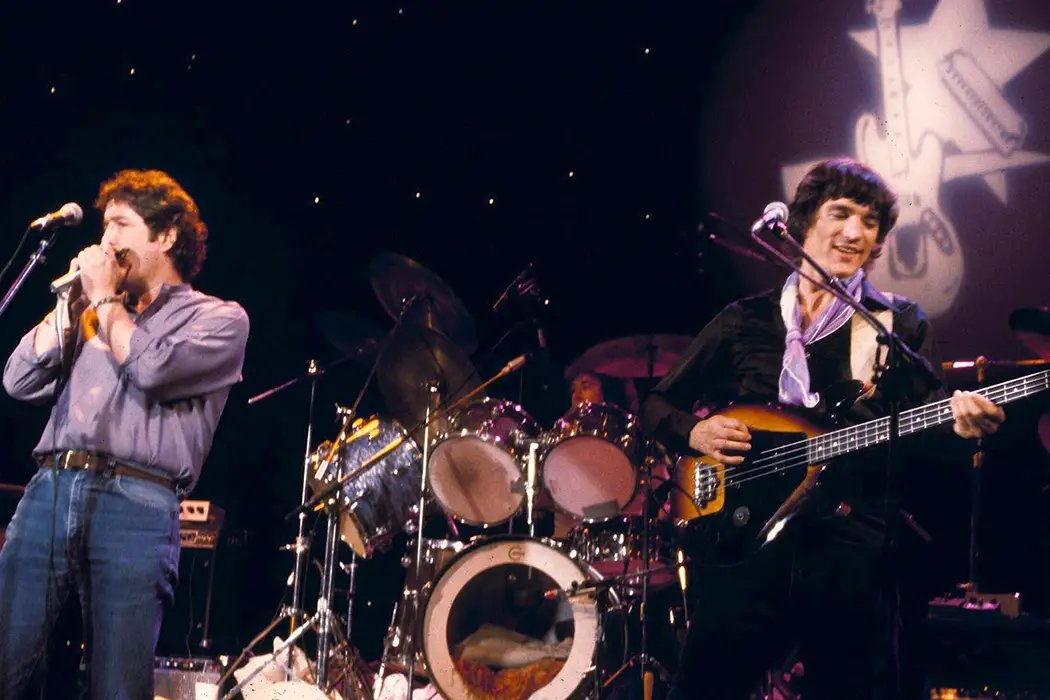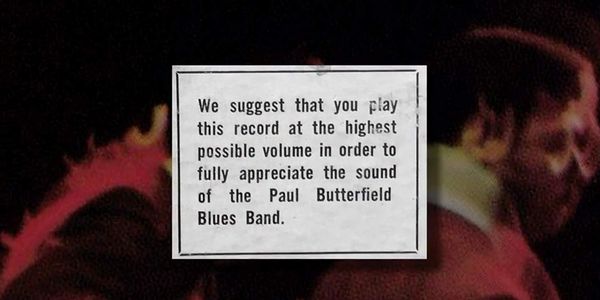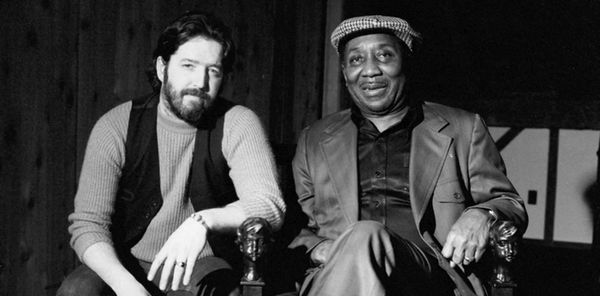HORN FROM THE HEART: THE PAUL BUTTERFIELD STORY: A Documentary That’s Got Its Mojo Working

Tom is a recent graduate based in the UK, who…
Although rarely placed in the pantheon of blues musicians, few will dispute the influence Paul Butterfield had on blues music. A harmonica player from Chicago, he pushed the bounds of the jazz that was played at the time and formed the Paul Butterfield Blues Band, which became hugely popular. His music was fierce, frenetic and free – until he died of an accidental heroin overdose in 1987, at the age of 44.
This story, of a promising blue’s life cut short, is what director/producer/editor John Anderson wanted to tell in Horn From the Heart. Using archival footage and modern interviews, Anderson follows the rise of a young boy from Hyde Park, to the various tours and shows, to having a home in Woodstock, to his untimely death.
While the documentary is a definitive timeline of the events in the life and death of the blues musician, it never feels as though it’s really getting to the roots of the icon.
Getting The Whole Butterfield Story
Horn From the Heart’s style is fairly by-the-numbers in the way that it juggles interviews and footage. However, it excels through the sheer number of interviewees there are – not only do we meet his bandmates and relatives, but other musicians, club promoters, and label managers that signed Butterfield. There are close to thirty different interviewees, and this high number really helps to shine a light on the man in various ways.

Although to begin there are only a few interviewees – mainly long-time collaborator Elvin Bishop and brother Peter Butterfield, the filmmakers clearly went out of their way to find as many perspectives as possible. It’s a testament to the legacy of the man when B.B. King and Paul Shaffer are explaining his musical influence. Many of the subjects provide insight that would be unavailable elsewhere, such as Todd Rundgren exploring Butterfield’s career after his band broke up.
There are a few interviews that seem out of place, however. Butterfield’s first son, Gabriel Butterfield goes to locations that were important to his father, but he clearly isn’t sure what he’s trying to say and one of his interviews has a notable, jarring jump cut halfway through. As well as this there are two or three points in the film when a narrator begins to explain details – the first of which is rather far into the documentary. The scarcity of the narration, since for the most part the editing between the documentaries and footages provide all necessary context, makes the narration jarring when it does occur.
Finding The Heart
One unfortunate side-effect of having the documentary constructed from interviews is that, when people talk about Butterfield, they are defining him solely through their interactions and relationships with him, and this means there’s a surprising lack of insight into the psyché and persona of Butterfield. For a man that died from a drug overdose, and whose life was scarred by severed relationships and drug problems, the focus on his musical career instead of his personal life leaves the emotional core of the film feeling a little hollow.
At several points in the film there are audio recordings of Butterfield talking about himself or conducting interviews; however, these recordings are few and far between. Although musicians are meant to speak through their music, it seems unlikely that there are no more actual interviews or talks from him. These would likely provide more insight than another musician talking about how great playing in the band was.
Due to focusing on Butterfield’s musical life, time speeds up rapidly towards the end of the documentary, as towards the end of his life he became far less prolific as a musician. Years pass by in minutes, and it seems like a wasted opportunity in which the film could explore the deterioration of the man. His actual death is processed just as quick, and the film never begins to hypothesise why the man took drugs in such a reckless way.

Some of the interviews do delve into Butterfield’s character, however. Particularly noteworthy is a passionate soliloquy from Butterfield’s second child, Lee Butterfield, about the on-off relationship the two had when he was young, and his absence as a parent due to his lifestyle. It’s at moments like this that the documentary shines – it explores both the blues hero and the wake he left from his career, and does so with a person who is clearly speaking from the heart.
Horn From The Heart: The Paul Butterfield Story: Conclusion
Horn From The Heart is a fine documentary. It follows Paul Butterfield’s career in a compelling and caring way, enough so that you don’t need to know the music to appreciate the story. It’s well made, and the sheer quantity of interviewees and footage shows that the filmmakers were dedicated to their project. As a list of the events of his life, it’s great.
However, watching the film, you never feel like you’re truly understanding who Butterfield was, what drove him, or why he did some of the things he did. Interviewee Happy Traum describes how blues has to come from somewhere within and be an outlet for your feelings, be it pain or happiness, but the film never explores the feelings that Butterfield was trying to let out. This seems a shame, given that Butterfield’s eventual self-destruction must have been intimately linked to his music.
Should a documentary about a famous artist focus on their professional or personal lives? Let us know what you think in the comments below!
Horn From The Heart: The Paul Butterfield Story will release in the United States in August 2018. Find more information here.
Does content like this matter to you?
Become a Member and support film journalism. Unlock access to all of Film Inquiry`s great articles. Join a community of like-minded readers who are passionate about cinema - get access to our private members Network, give back to independent filmmakers, and more.
Tom is a recent graduate based in the UK, who writes about films and games, and makes a few of his own. If he's not watching a film, playing a game or writing a script - don't worry! - he's probably just gone to make a cup of tea. He's never far from a screen.













